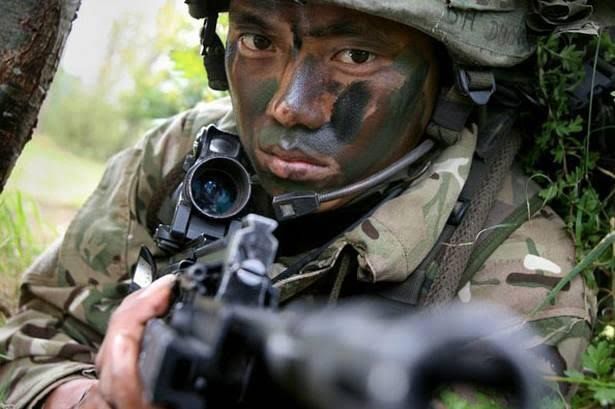A Pivotal Moment in the Changing Landscape of Global Military Operations: The Influx of Nepali Gurkhas into the Ranks of Russia's Wagner Group

Recent reports suggest that the Nepali Gurkhas, revered as formidable warriors worldwide, are enlisting in the Wagner Group, a private military company (PMC) from Russia. This development occurs amid a tense political climate following the Wagner Group's brief revolt against Russia's President, Vladimir Putin. The group has since returned to its base after Putin agreed to offer their leader, Yevgeny Prigozhin, immunity from treason charges in exchange for exile in Belarus.
The Wagner Group, notoriously more effective than the traditional Russian army, has recently demonstrated its prowess by securing control over Bakhmut, a strategically critical city in eastern Ukraine. These exploits have fueled speculation and intrigue surrounding the motivations of the Gurkhas in aligning themselves with the private military company.
On May 16, the Russian authorities significantly streamlined the process for acquiring Russian citizenship, requiring just a year of military service. This modification has reportedly led hundreds of Nepali youths, including many ex-Nepal Army servicemen, to sign contracts with the Russian forces, according to recent reporting by The Diplomat.
Major General Binoj Basnyat (retired), a strategic analyst from the Nepal Army, stated his concern over the situation, emphasizing that the Nepal government has been largely powerless to intervene given the individual nature of these enlistments.
A combination of factors appears to have instigated this trend. Firstly, the allure of Russian citizenship has proven potent for many Nepali youths. Secondly, the halt in recruitment by the Indian Army, following the Indian government's move to replace long-term employment with shorter contracts and no pension, has left many seeking alternatives. In response to this abrupt change, Nepal suspended its two-century-old recruitment process with India until further clarification.
Social media platforms are now populated with videos showcasing Nepali youths undergoing military training in Russia. One former Nepal Army serviceman recounted how he was swayed from his security guard job in Dubai by the more lucrative offers available in Russia. These recruits are able to take advantage of a new, more inclusive recruitment policy that does not necessitate Russian language proficiency.
The Ukraine war has elevated the Wagner Group's profile significantly. Their hard-won victory over the Ukrainian town of Bakhmut has emboldened their reputation for bravery and solidarity. Furthermore, their tacit link with Russian military and intelligence - from weapons supply to access to training facilities - has strengthened the perception of the Wagner Group as an essential extension of Russia's military prowess.
The allure of the Wagner Group is, however, not purely about patriotic duty or prestige. The PMC pays its recruits up to $2,500 - a considerable sum, especially when juxtaposed against Russia's average monthly income well below $1,000. For the Nepali youth, this monetary incentive represents an opportunity that is difficult to pass up.
The rise of PMCs is not a new phenomenon. Their prevalence dates back to the Cold War, with Western nations outsourcing sensitive missions for plausible deniability. However, PMCs have been gaining more prominence and controversy in recent years, with the American wars in Iraq and Afghanistan spurring an increase in PMC hires for a range of roles, from security to logistics.
Today, PMCs are seen as a viable choice for governments, corporations, and even NGOs operating in high-risk areas. Despite the potential benefits, the controversial actions of some PMCs, such as the notorious Blackwater, highlight the inherent risks involved.
In conclusion, the recent influx of Nepali Gurkhas into the ranks of Russia's Wagner Group represents a pivotal moment in the changing landscape of global military operations. It underlines the increasing relevance of PMCs in modern warfare and geopolitical strategies. As the global stage becomes more unpredictable and fraught, it's clear that these private armies will continue to play a vital role. However, the ethical implications and potential consequences of this growing trend remain a contentious issue, demanding vigilant scrutiny and regulation.



Comments ()